How to Explain Intuitive Eating to a Friend

It’s one thing to apply the principles of intuitive eating and reject the diet mentality, but for many, sharing these ideas with friends and in social situations can be a major point of stress. If you feel this way too, you are not alone! Building a strong support system is important, so today we’re talking about how to explain and talk about intuitive eating and the non-diet approach to friends and loved ones including some conversation-starters, resources, and tips.
If you’d like a handout on how to respond to diet talk, you can download a copy here.

A common theme we hear from our clients is that – after rejecting diet culture, learning to tune in to internal cues, and starting to feel more at peace and comfortable in their body – explaining these practices to a friend or family member can bring on a whole new set of challenges.
People in our society are so used to measuring health and success by dieting and weighing themselves, that it can be really common to get pushback when you try to explain how you are doing something very different. In our dieting-obsessed society, intuitive eating can be a completely foreign concept.
Here are some resources, suggestions and tools you can use to navigate these conversations.
All of my friends are talking about their new diet – help!
Dieting is something many people bond over. Whether it’s an office weight loss challenge, a popular new meal plan at your gym, or just your friend group talking about summer vacation – dieting is bound to come up.
In this instance you have a few choices:
1. If you don’t feel like explaining yourself or sharing what you’re doing, shut down the conversation by saying something like “It sounds like you found something that works for you” and then change the topic.
2. If the conversation is really triggering and bothering you, you don’t have to sit there! Get up and go to the bathroom or step into another room to give yourself a break from the diet talk.
3. If you feel comfortable and ready to talk about what you’re doing, you can share more about why you’re no longer dieting, what you’re doing instead, and how you have been feeling so far.
Remember how you felt the first time (or first several times!) you heard about a non-diet approach. Were you skeptical? Were you hurt at the idea that dieting wasn’t sustainable? Did you feel like the person telling you this information wasn’t being honest? Put yourself back into those shoes and understand that your friend might not be ready to hear this information for themselves yet. That may make you sad for them, but I always think of it as planting a seed. Maybe they’re not ready to jump out of the dieting cycle right now, but they may be in the future and then maybe they’ll come back to this conversation.
Hopefully, if this is a good friend, they will still be open to supporting you and happy that you have found an approach to food that feels good to you.
We all need to eat several times a day, every day, so it makes sense that food would become a common discussion point or a popular topic of conversation. But try to think of other things you have in common besides food and dieting, and take the conversations in a different direction.
If you realize that this is all your friends are interested in talking about, even after you’ve tried to find other common interests, it might be that this friendship isn’t fulfilling or supporting you right now, and that is ok.
My family or partner makes comments about my body or my food choices.
Family dynamics are tough, but you always have the right to respect and to feel safe. This can be a two-step process of education and boundary setting. Start by explaining to your family/partner why certain phrases or comments on your food choices or your body are bothersome to you. They may not be aware of the impact of their words until you bring it up. After you’ve addressed it, if their behavior doesn’t stop, then you can set a clear boundary and protect yourself from further harm.
Try phrases like:
- “My body and my food are not up for discussion”
- “This isn’t something I want to talk about right now”
- “Those comments make me uncomfortable, please don’t speak that way to or about me”
- “Remember when I told you how I’m working on listening to my body around food and feeling better in my body? Those comments make it hard for me, let’s talk about something else.”
By clearly setting the boundary and expressing how the phrases or comments are hurtful to you, you’ve set up a more healthful environment for yourself.
Unfortunately, some situations and relationships are more difficult to navigate in this way – but it’s important to remember that you always deserve respect and to have your boundaries respected. Sometimes this means working with a therapist to have a neutral party able to facilitate these conversations, creating more distance in a relationship or even pausing or ending a relationship that’s harming you.
How do I explain that I’m not dieting?
Once your eyes are opened to diet culture and the many ways it’s woven into our every day, you might find yourself noticing comments and or situations where you encounter dieting talk. Here are some examples of ways to either deflect them or, if you’re up for talking about it, plant some seeds of the non-diet approach.
- When you order a salad and the cashier says “Oh! We’re being good today, aren’t we?”:
- You can say: “Eating a salad doesn’t make me a better person – it’s just what I’m in the mood for. Thanks!”
- When you want dessert after dinner and your friend says “I can’t today, I’ll gain X lbs if I eat that”:
- You can say: “That’s not how bodies work. Our bodies can use all types of foods and this is what sounds good to me right now.” or “I used to think that too, but ever since I’ve been listening to my body about what it really wants and needs, I’ve been able to enjoy my dessert – and all foods! – so much more.”
- When your coworker asks if you want to join her in a cleanse after the weekend:
- You can say: “No thanks! Those never make me feel good – I always feel tired and irritable, and restricted. I’d rather eat enough foods that satisfy and nourish me. But if you want to grab (an actual) lunch together later, I’d love that.”
- When an account you follow on social media posts a calorie meal plan, transformation photos, or a list of ‘good’ and ‘bad’ foods:
- You can: unfollow them! Fill your feed with some of these diverse, inclusive and non-diet accounts instead.
Other phrases to use when you’re confronted with diet talk:
- If someone says: “Oh boy! If I ate like that, I’d be X lbs more/less”:
- You can say: “We all have different food preferences and needs – this is working for me today!”
- If someone starts talking about their new diet/weight loss plan:
- You can say: “Speaking of new things, have you watched that new documentary ______ on Netflix? It’s so fascinating!”
- If someone makes a comment on your body or the food on your plate:
- You can say: “I’m sure we have something more interesting to talk about than mashed potatoes! How was that vacation you took a few weeks ago?” Or “I’d rather talk about something else. Do you have any exciting trips planned?”
- If someone says “I’m going to be bad and go up for more – that dish is just so good!”:
- You can say: “Don’t be silly, there’s nothing ‘bad’ about eating! If you still want more, you should have more, the food is amazing!”
- If someone says “My problem is I can just never stop eating once I start”:
- You can say: “I’ve been working on tuning into my internal cues around hunger and fullness – it’s been such an eye-opening experience to really feel like I can give my body what it needs and wants.”
When explaining anything that’s important to you, having the support of your loved ones can be important. It can be scary to share something so special to you, especially something that goes against the grain of some cultural norms. Remember how you felt when you first learned about a non-diet approach and how your first conversations went, and try to offer the same openness of conversation to whoever you’re sharing with.
You also have the right to remove yourself from conversations or groups that don’t make you feel supported or who don’t respect your boundaries of changing the dialogue around food, health, and your body. Not everyone will be an instant convert to a non-diet approach, but being able to articulate it as an important topic to you, and plant the seed for others is a great starting point.
Interested in diving deeper into intuitive eating and making peace with food?
Check out my Unapologetic Eating 101 Course, an online, self-paced program to liberate yourself from dieting and make peace with food and your body.
My team and I also offer virtual one-on-one support – you can check out our virtual intuitive eating nutrition coaching packages.
My book, Unapologetic Eating: Make Peace with Food and Transform Your Life, is also a great resource that includes information, research, and reflection prompts to help you move away from dieting and come back home to your body, so you can live your most unapologetic, liberated life.
Author Bio
This article was written and reviewed by Alissa Rumsey, MS, RD, CSCS, a registered dietitian and Certified Intuitive Eating Counselor. She specializes in weight-inclusive care, intuitive eating, body image healing, mindfulness, self-compassion, and healing from chronic dieting, disordered eating, and eating disorders. Alissa holds a Bachelor’s Degree in Nutrition and Exercise Science, and a Master’s Degree in Health Communications, and is also an NSCA Certified Strength and Conditioning Specialist.
2 Comments
Leave a Comment
share the love
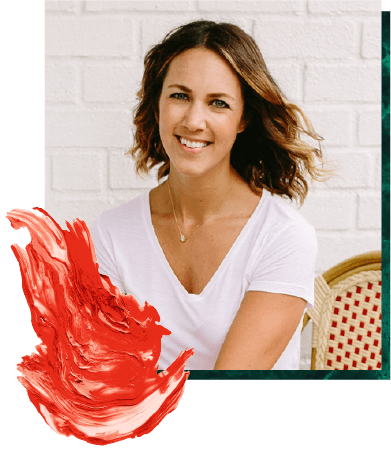
about
Alissa Rumsey, RD.
Alissa Rumsey, MS, RD, CDN, CSCS (pronouns she/her/hers) is a registered
dietitian, nutrition therapist, certified intuitive eating counselor, and the author of
Unapologetic Eating: Make Peace With Food and Transform Your Life. Alissa is
passionate about helping people reclaim the space to eat and live,
unapologetically.
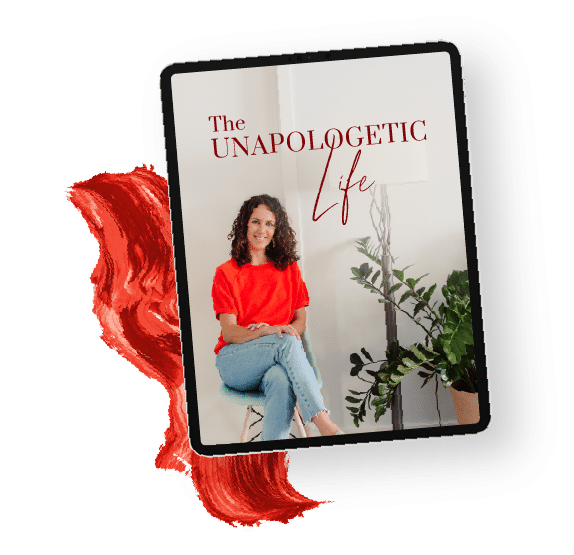
A twice-a-month round-up of inspirational stories, lessons, practical tips and encouragement for living your most authentic, unapologetic life.
The Unapologetic Life
RECENT POSTS
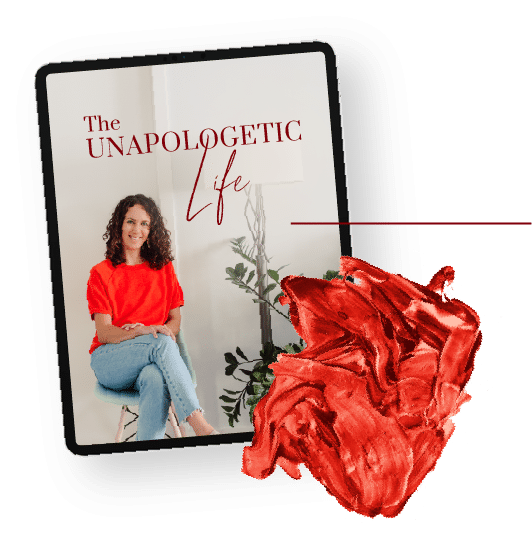
The Unapologetic Life
A twice-a-month round-up of inspirational stories, lessons, practical tips and encouragement for living your most authentic, unapologetic life.






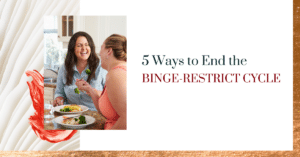

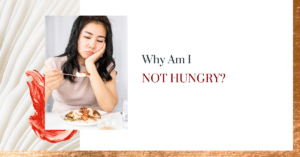
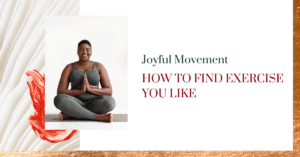
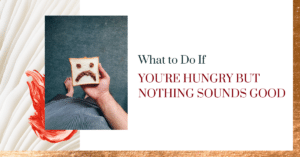
Hello! I recently discovered, or rather paid more attention to, intuitive eating. I’m about 3 weeks into this new journey and it has been life changing so far. It feels amazing to just…eat! I can already see a few very subtle changes like noticing what real hunger and being satisfied feels like. I’m definitely still in the “eat all the forbidden foods” stage, and I still have thoughts about “when I get slimmer”, but the shift is definitely happening.
Also, I have a close friend that was my dieting buddy and I have yet to share with her this new journey. I know that she’s not ready to hear it and I’m not ready to discuss why this is good for me. So for now we are each doing our own thing, but I have cut out talking about dieting in any aspect and that too has been a really (REALLY) nice change of pace. I’m prepping myself for the inevitable conversations about food and dieting that will come up with my family around the Fourth of July. Thanks for the great tips!
I love these ideas!!
“I’m sure we have something more interesting to talk about than mashed potatoes!!” made me laugh out loud!
And “eating a salad doesn’t make me a better person” is profound. When we get comfortable saying these types of things to others, I feel like we are also reinforcing it within ourselves by stating it out loud. 🙂 a win-win!